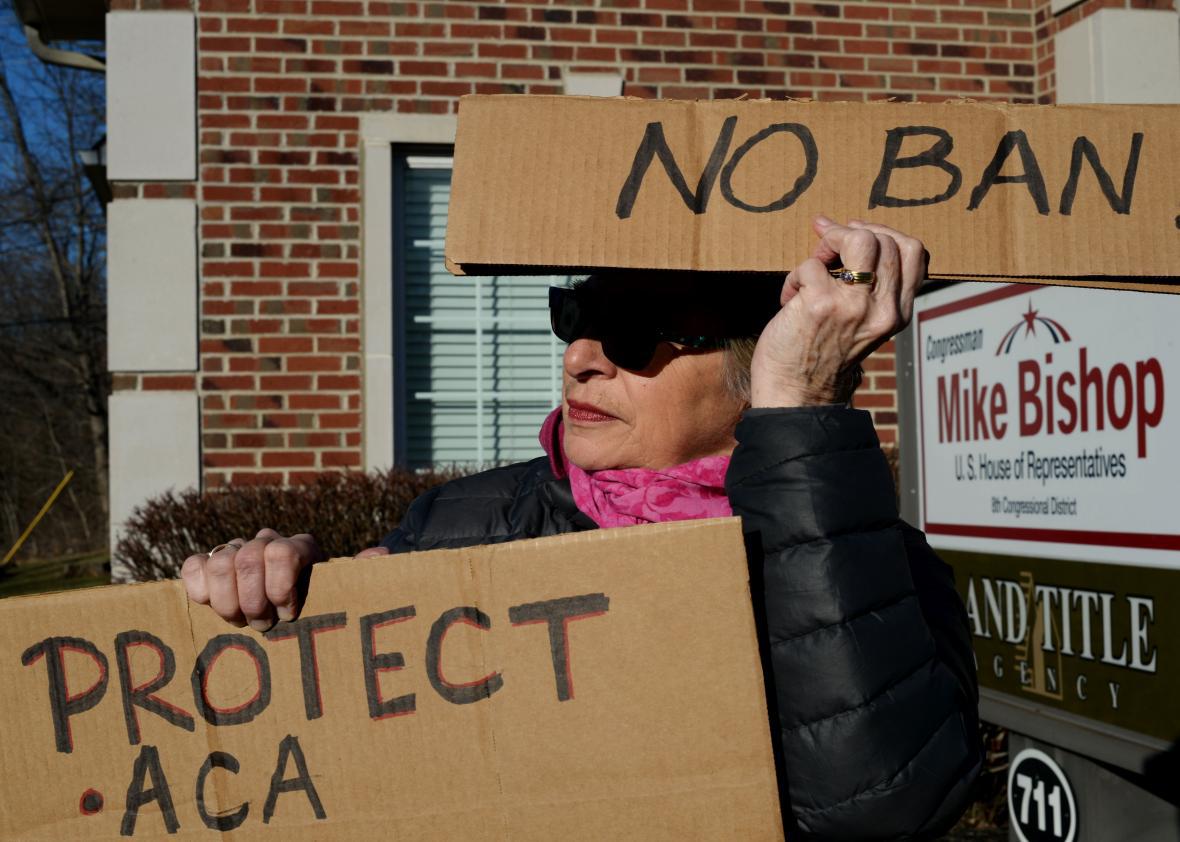In an opinion filed on Monday in the U.S. District Court for the Eastern District of Virginia, Judge Leonie Brinkema has now granted a preliminary injunction in the case Aziz v. Trump. The Commonwealth of Virginia had filed suit, claiming that Trump’s executive order—titled “Protecting the Nation From Foreign Terrorist Entry Into the United States”—violates the First and Fifth amendments to the United States Constitution, as well as the Immigration and Nationality Act and the Religious Freedom Restoration Act. While this suit was filed before the 9th Circuit made its decision last week to uphold a nationwide injunction, the preliminary injunction in this case applies only to the commonwealth.
Judge Brinkema first found that the commonwealth has shown evidence that the ban will be harmful to the universities and public colleges in the state and that the defendant, the United States, has shown no evidence to counter these claims. Brinkema also noted that while the Trump administration has maintained that the executive order is necessary to “protect the United States from terrorist attacks to be carried out by nationals from the seven affected countries,” it offered no evidence to justify those national-security concerns, nor had it even “described the process by which the president concluded this action was necessary.” She notes that the only national-security evidence actually placed in the record is a declaration of 10 national-security professionals, who all agree that “the order undermines the national security of the United States, rather than making us safer.”
The judge then goes on to the issue of justiciability and concludes that—ouch—“Maximum power does not mean absolute power.” Judge Brinkema then cites no less an authority than Marbury v. Madison in noting that Trump’s executive order is reviewable by the courts—reminding us, once more with feeling, that it is “emphatically the province and duty of the judicial department to say what the law is.”
In turning to the commonwealth’s likely success on the merits, Brinkema finds that the constitutional bar on establishing religion rarely succeeds, because the government rarely attempts to advance one religion over another. Yet in assessing whether Trump’s Muslim ban in sheep’s clothing is a sham, she suggests that “a person is not made brand new simply by taking the oath of office.” Or, as she writes, “The Muslim ban was a centerpiece of the president’s campaign for months, and the press release calling for it was still available on his website as of the day this Memorandum Opinion is being entered.”
Judge Brinkema concludes that there is a possibility of irreparable harm to the commonwealth of Virginia if the ban goes back into effect. She then limits the injunction to the commonwealth itself. One imagines that it’s only a matter of moments before Trump or Stephen Miller tweets something at Judge Brinkema suggesting that judges have no place in a constitutional democracy. Thankfully, and yet again, constitutional democracy emphatically disagrees.
